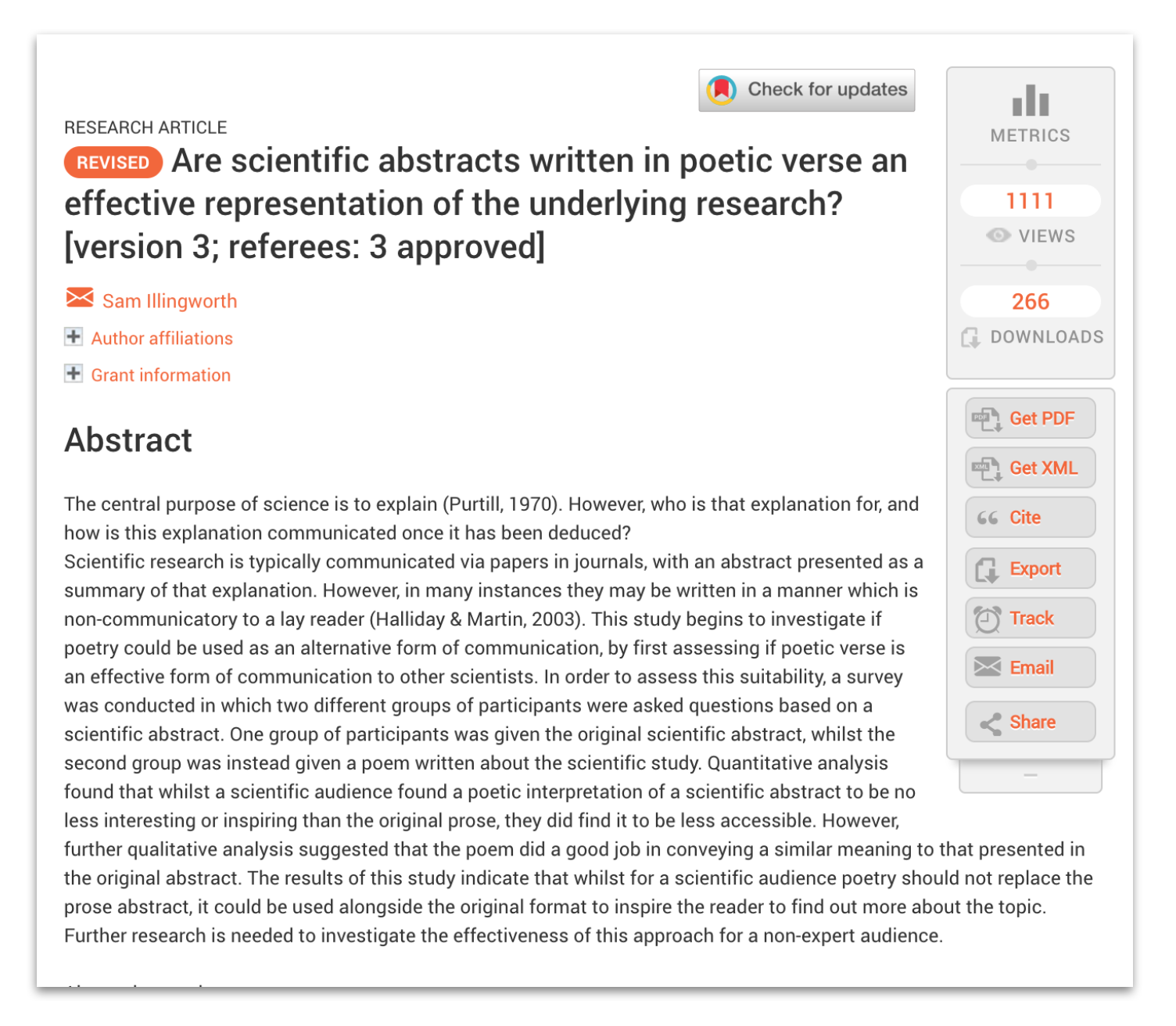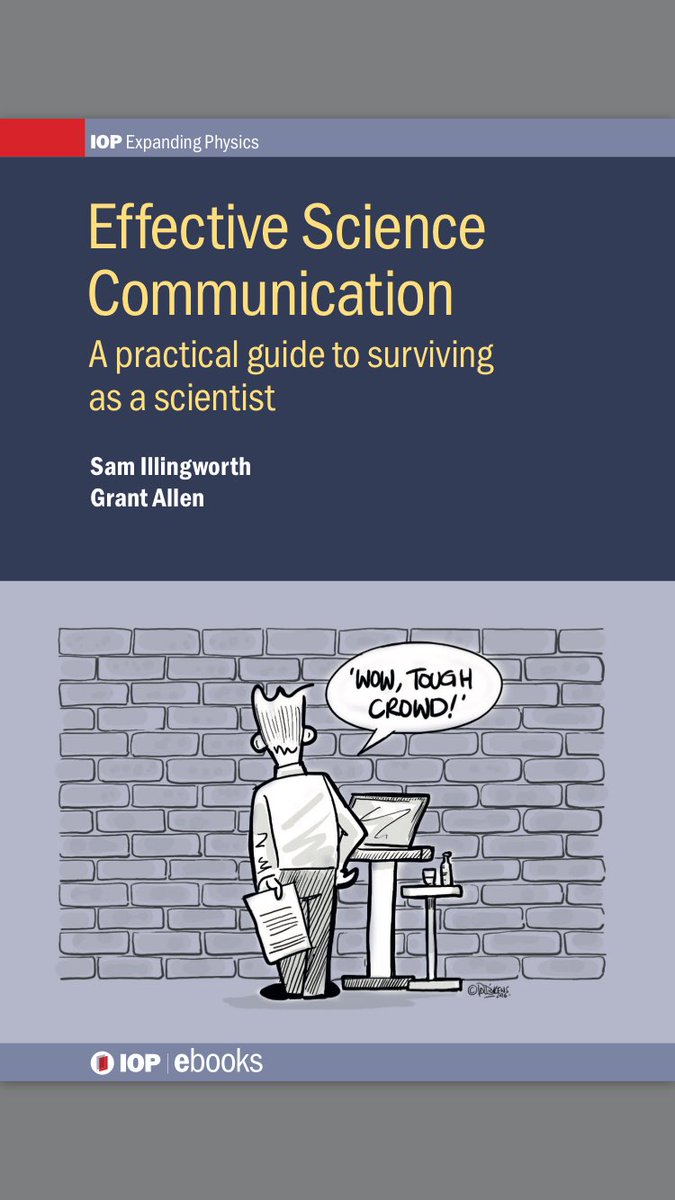Using poetic verse for scientific abstracts – a study by Sam Illingworth
Can the accessibility of a scientific article be improved if the original abstract is interpreted in poetic verse? Sam Illingworth – SciComm teacher at Manchester University and science poet – recently decided to explore this.

Hi Sam, how did you get the idea to write this paper?
This came about because after reading my blog (The Poetry of Science, in which I write a weekly poem that aims to communicate a new area of research to a wider audience), a couple of people suggested that maybe poetry could replace the traditional scientific abstract. I thought that this sounded like a neat idea, and so putting my scientist hat on I decided to investigate.
What were your findings?
The study (which can be read in full here) basically involved asking scientists to judge the accessibility, interest and inspiration of either the original abstract of a scientific paper or of a poem that I had written about the research, and then asking them to write what they thought the study was about (based on either the poem or the original abstract, with each group given either the poem or the original abstract). The results indicated that whilst both groups had similar thoughts as to what the study was about, they found the poem to be less accessible. This is undoubtedly a comment on my own poetic sensibilities rather than of poetry in general! J
The caveat of course is that it was only a reasonably small sample size, and to make more general statements about scientists and their reception to poetry I would need to conduct a bigger survey. I would also like to try and conduct a similar study with members of the public, as I suspect that the results might be quite different.

In 2016, Sam Illingworth published a practical communication guide for scientists.
Read more.
What kind of feedback have you received on the paper?
Generally, very positive, and the peer review process itself via the F1000 Research editorial team was also very useful. I particularly enjoyed the comment from one of my peer reviewers that I needed to provide a poetic abstract of my own, which I then did!
Give three pieces of advice to the scientist who has decided to write an abstract in poetic verse.
- Synthesise you research into three or four key messages that you really want people to understand as being the foundations of your research.
- Consider what form of poetry you are going to use; try to pick one whose underlying rhythm and structure reflect the research that you have carried out. Shadow Poetry have some great resources for this.
- Have fun!
Finally, which science-themed poem is your favourite, and why?
This is a difficult question, as it tends to change on at least a weekly basis. Currently, I would probably say that it is The Black Stars by the Italian-Jewish Chemist and Writer Primo Levi, because it is such a beautiful piece that can be read as either a pragmatic treatise on the insignificance of personal worries, or as a desolate statement on the futility of life:
Let no one sing again of love or war.
The order from which the cosmos took its name has been dissolved;
The heavenly legions are a tangle of monsters,
The universe – blind, violent, strange – assails us.
The sky is strewn with horrible dead suns,
Dense sediments of mangled atoms.
Only desperate heaviness emanates from them,
Not energy, not messages, not particles, not light.
Light itself falls back down, broken by its own weight,
And all of us human seed, we live and die for nothing,
The skies perpetually revolve in vain.
by Primo Levi (1919-1987), translated by Ruth Feldman and Brian Swann.

Sam Illingworth: “I am a Senior Lecturer in Science Communication at Manchester Metropolitan University in the UK, where my research revolves around using different media (such as poetry, art and theatre) to bring together experts and non-experts to communicate science via two-way dialogue. As a science communicator, I also like to write and perform poetry, and I have been fortunate enough to have done so all over the world. You can read more about my research and practice on my website: www.samillingworth.com”
- Claire Price of Crastina receives outreach award from Royal Society of Biology - October 25, 2020
- Agile Science student project at Brussels Engineering School ECAM: “We can’t wait to try it again!” - August 28, 2020
- Create an infographic in the Lifeology SciArt Infographic Challenge - June 16, 2020
- Adam Ruben – The scientist that teaches undergraduate students comedy - March 27, 2020
- Sam Gregson, Bad Boy of Science: “Comedy helps to bridge the gap” - March 10, 2020
- The Coolest Science Merchandise of 2019 - December 16, 2019
- Science Media Centre (UK) offers guide on dealing with online harassment in academia - November 26, 2019
- Agile project management taught to students and researchers at Karolinska Institutet - September 20, 2019
- Stefan Jansson: Improve your credibility! (Crastina Column, September 2019) - September 6, 2019
- The People’s Poet: Silke Kramprich, tech communicator - August 31, 2019





Thanks very much for sharing your small-study findings about presenting an original abstract as prose or poetry. Maybe including BOTH would connect with a broader audience? Different poetry forms can suit different subjects, however, as with music, different people have preferences or attachments to different forms or styles too. I learn something new (in both science and poetry) with each new poem from your blog The Poetry of Science.
Thanks Celia,
That is a really good idea! I am working on a new study along similar lines so will keep you posted.
Thank you also for your kind words,
Sam
Wonderful collection. Poetry is an arrangement of satisfaction and torment and marvel, with a scramble of the word reference. Thanks for sharing your blog.